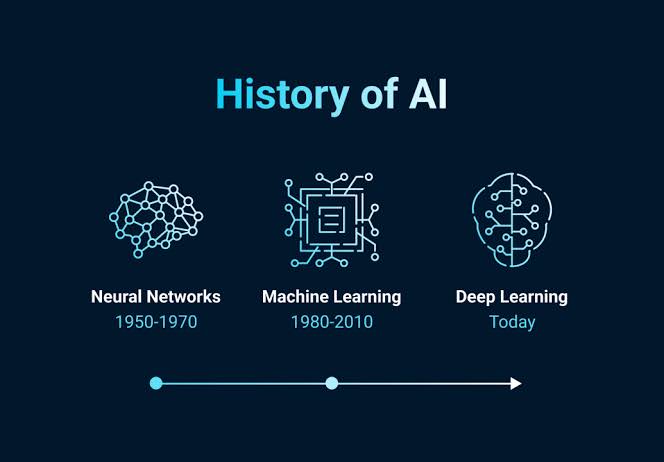Explore the evolution of Artificial Intelligence (AI) from its conceptual beginnings to modern advancements, including the impact of entities like DeepMind. Learn about key milestones, ethical considerations, and future trends shaping AI's role in society and technology.
Artificial Intelligence (AI) has evolved significantly since its conceptual beginnings in mid-20th century. This exploration traces journey of AI from its foundational theories to breakthrough advancements achieved by modern entities like DeepMind.
Early Concepts and Foundations
Roots of AI can be traced back to 1950s when computer scientists began exploring possibility of creating machines capable of intelligent behavior. A pivotal moment was Alan Turing's proposal of Turing Test in 1950. It aimed to determine a machine's ability to exhibit human-like intelligence. Turing's work laid groundwork for subsequent developments in AI research.
The Dartmouth Conference (1956)
In 1956 the Dartmouth Conference marked official birth of AI as a field of study. It was organized by John McCarthy, Marvin Minsky Nathaniel Rochester and Claude Shannon. The conference brought together leading scientists. They explored topics such as problem-solving, language processing and neural networks. This event provided a platform for defining AI's goals. It also set the objectives.
Early AI Applications and Challenges
During the 1960s and 1970s, AI research focused on symbolic reasoning and problem-solving techniques. Programs like the General Problem Solver (GPS), developed by Herbert Simon and Allen Newell, demonstrated early successes in solving logical and mathematical problems. However, AI faced challenges in scaling these solutions to handle real-world complexity and uncertainty.
The AI Winter (1970s-1980s)
The 1970s and 1980s witnessed a period known as the "AI winter," characterized by waning interest and funding due to unmet expectations and technical limitations. Early AI systems struggled with practical applications and failed to deliver on ambitious promises. This downturn led to skepticism and reduced investment in AI research for nearly a decade.
Expert Systems and Knowledge Representation
Amidst the AI winter, expert systems emerged as a dominant AI paradigm in the 1980s. Expert systems utilized knowledge representation and rule-based reasoning to mimic human expertise in specific domains. Applications ranged from medical diagnosis to financial forecasting, demonstrating AI's potential in specialized problem domains.
Neural Networks and Machine Learning Resurgence
The late 1980s and 1990s saw a resurgence of interest in AI fueled by advances in neural networks and machine learning. Neural networks, inspired by biological neural networks, enabled AI systems to learn from data and improve performance through experience. Key milestones included the development of backpropagation and the application of neural networks in pattern recognition tasks.
Big Data and Computational Power Advances
The early 2000s marked a transformative era for AI, driven by exponential growth in computational power and the availability of vast amounts of data. Techniques like deep learning, enabled by multi-layered neural networks, revolutionized AI capabilities in speech recognition, image classification, and natural language processing. Companies like Google, through projects like DeepMind, achieved breakthroughs in AI with applications ranging from AlphaGo to autonomous driving.
Ethical and Societal Implications
As AI capabilities continue to advance, ethical considerations have become increasingly important. Concerns about privacy, bias in algorithms, job displacement, and the impact on societal norms have prompted discussions on responsible AI development and deployment. Regulatory frameworks are evolving to address these challenges and ensure AI technologies benefit society while minimizing risks.
Current Trends and Future Outlook
Today, AI permeates various sectors, including healthcare, finance, transportation, and entertainment. Innovations in AI-driven technologies such as robotics, autonomous systems, and smart devices continue to shape the future landscape. Ongoing research focuses on enhancing AI's interpretability, robustness, and ethical compliance to foster trust and acceptance.
Conclusion
The history of Artificial Intelligence is characterized by significant milestones, setbacks, and breakthroughs that have shaped its evolution into a transformative force in the modern era. From theoretical foundations laid by Alan Turing to the practical achievements of DeepMind and other contemporary AI pioneers, the journey of AI underscores humanity's quest to replicate and enhance human intelligence. As AI continues to advance, its impact on society will depend on ethical stewardship, responsible innovation, and collaborative efforts to harness its full potential for the benefit of humanity.
